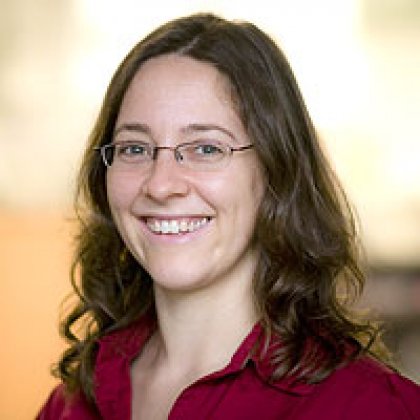
A University of Queensland researcher has co-authored a new theory that can help predict how different plant species might respond to climate change, and may enable the production of better stress-resistant crops in the future.
The researcher is Dr Claudia Vickers of UQ's Australian Institute for Bioengineering and Nanotechnology (AIBN), who is first author on a new paper in the prestigious international journal Nature Chemical Biology.
Working in collaboration with Professor Jonathan Gershenzon from the Max Planck Institute for Chemical Ecology (Germany), Professor Francesco Loreto from the National Research Council Institute of Agro-environmental and Forest Biology (Italy) and Professor Manuel Lerdau from the University of Virginia (USA), Dr Vickers proposed a new unified mechanism of action for volatile isoprenoids in plant abiotic stress responses.
"Plants produce many different volatile compounds such as limonene, which gives lemons their distinctive smell and isoprene, which can be emitted in very large amounts," Dr Vickers said.
"We believe that they use some of these volatiles to help protect themselves against damage from adverse environmental conditions, like too much light, high temperature and air pollution.
"It is reasonable to assume that various species of plants will respond differently to climate change depending on whether or not they produce these volatiles.
"This knowledge can then be used to help develop crop plants which will perform better in stressful environments."
This theory is based on research previously conducted while Dr Vickers worked at Essex University in England.
Wanting to move into more applied area of research, Dr Vickers joined the laboratory of AIBN’s Professor Lars Nielsen who recognised the applicability of her molecular biology expertise to understanding metabolic pathways in bacteria.
Dr Vickers is currently using sucrose as a carbon source to develop novel methods of producing chemicals in bacteria. This approach can replace fossil fuels as chemical sources and will eventually tranform chemical production into an environmentally sustainable process.
AIBN Director Professor Peter Gray congratulated Dr Vickers on the publication of her paper and highlighted the multidisciplinary nature of AIBN research.
"AIBN requires the skills of biologists, chemists and engineers to solve environmental and human health problems and deliver these solutions to market," he said.
"The recruitment of Claudia demonstrates AIBN's ability to reverse the Australian brain drain and build multi-disciplinary teams of talented people."
The AIBN is a multi-disciplinary research institute based at UQ, which brings together the skills of world-class researchers in the areas of bioengineering and nanotechnology to produce positive health and environmental outcomes such as biomedical delivery; bio-devices; tissue regeneration; and cell therapies.
Media: Contact Claudia Vickers (07 3346 3158) or Russell Griggs (07 3346 3989)
.jpg)



